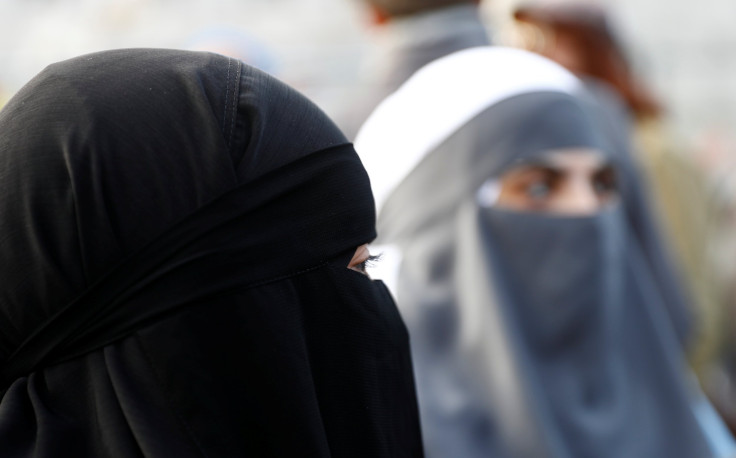Islamic Face Veils, Full-Body Burqas Banned In Denmark

The Danish Parliament on Thursday voted to ban clothing that covers the face, including Islamic veils such as the niqab or burqa. The law was passed with 75 MPs in support, 30 opposing and 74 not taking part, by Denmark’s center-right government.
With the decision, it joined a league of other European countries like France, Austria and Belgium that have already enacted similar laws.
"Anyone who wears a garment that hides the face in public will be punished with a fine,” the legislation says, BBC reported.
The government said that along with Islamic full-face veils, balaclavas would also be banned, thus stressing the law is not aimed at any specific religion.
The law does not ban face coverings worn during cold weather, or while riding a motorcycle. Headscarves, turbans or the traditional Jewish skull caps are also exempted from the law.
However, the law is popularly known as the “burqa ban,” and is largely seen directed at conservative Muslim women who wear veils as part of religious practice.
Few Muslim women wear full-face veils in Denmark. The number of Muslim women who wear niqabs in Denmark ranges from between 100 to 200, a study from the University of Copenhagen suggested.
The law will come into force on Aug. 1 and those violating it will be charged 1,000 Danish kroner ($122), with fines ten times higher, up to 10,000 Danish kroner ($1,223), for repeat offenders, plus jail time of up to six months.
The law also suggests a jail term of up to two years for anyone who forces another person to cover their face.
"In terms of value, I see a discussion of what kind of society we should have with the roots and culture we have, that we don't cover our face and eyes, we must be able to see each other and we must also be able to see each other's facial expressions, it's a value in Denmark,” said Denmark's Justice Minister Søren Pape Poulsen also emphasizing that it would be up to police to use their common sense when they see people violating the law.
Poulsen had called veils “disrespectful” to the community, when the veil ban was formally proposed by the Danish government in February.
Poulsen had said that “With a ban on covering the face, we are drawing a line in the sand and underlining that in Denmark we show each other trust and respect by meeting face to face.”
“All women should be free to dress as they please and to wear clothing that expresses their identity or beliefs. This ban will have a particularly negative impact on Muslim women who choose to wear the niqab or burqa,” said Gauri van Gulik, Amnesty International’s Europe director, reported The Guardian.
“If the intention of this law was to protect women’s rights, it fails abjectly. Instead, the law criminalizes women for their choice of clothing and in so doing flies in the face of those freedoms Denmark purports to uphold,” Gulik added.
He added that “This blanket ban is neither necessary nor proportionate, and violates the rights to freedom of expression and religion,” reported the Huffington Post.
© Copyright IBTimes 2024. All rights reserved.





















